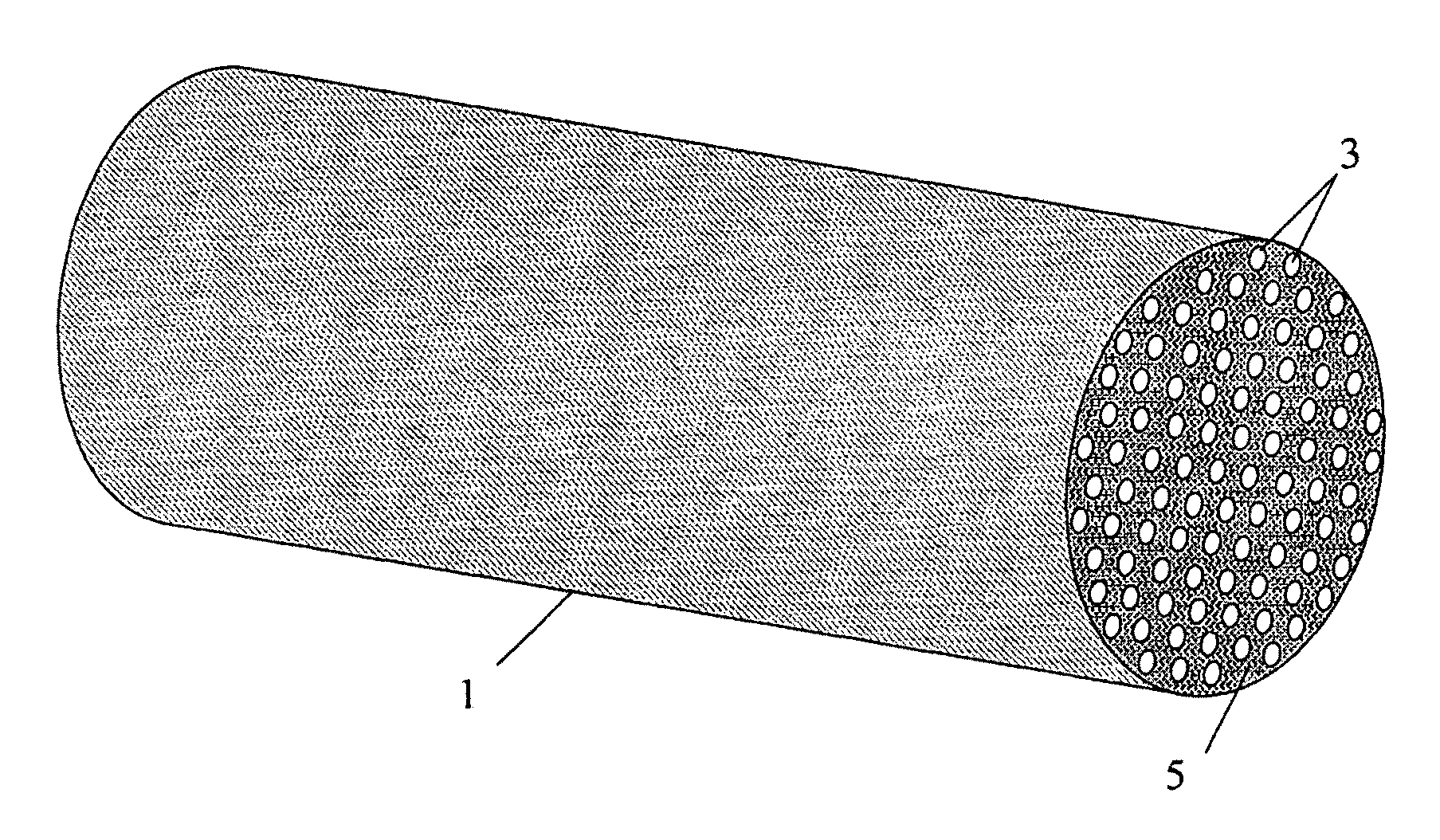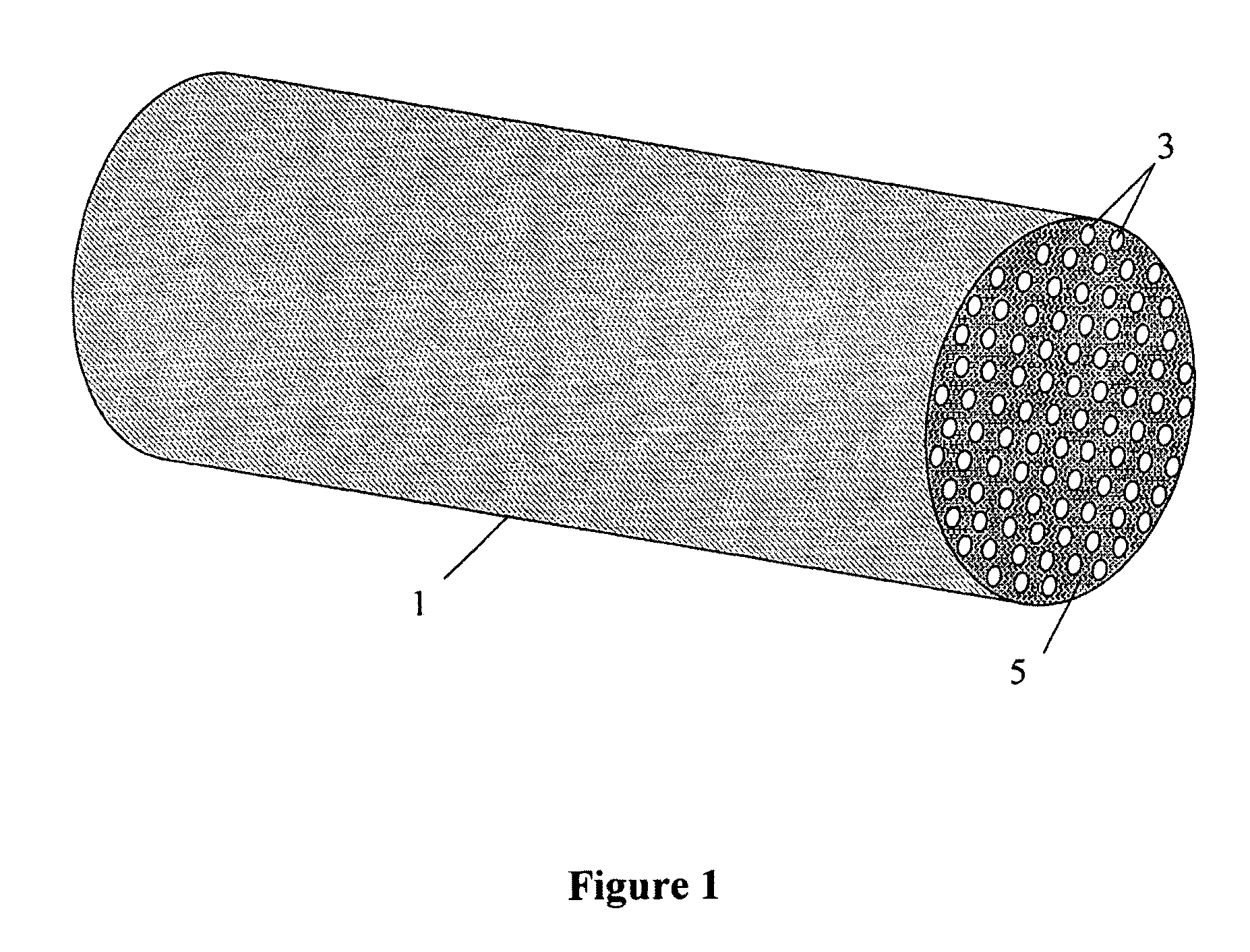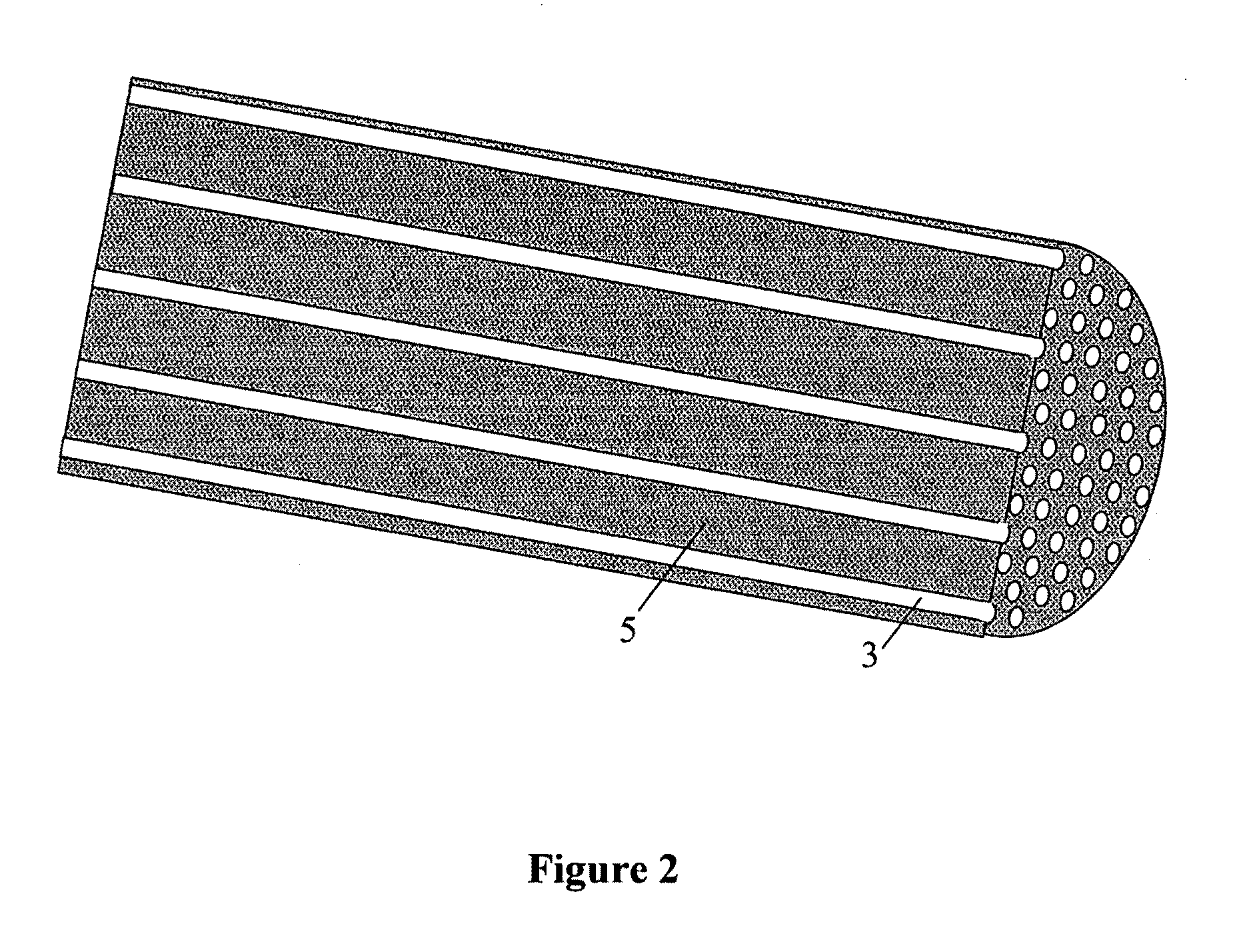Removal of heavy hydrocarbons from gas mixtures containing heavy hydrocarbons and methane
a technology of heavy hydrocarbons and gas mixtures, which is applied in the direction of gaseous fuels, separation processes, fuels, etc., can solve the problems of not being able to obtain both key components at high purity in and not being able to achieve a good light recovery. , to achieve the effect of solving the problem of not being able to achieve good light recovery, the problem of a single psa unit and a complete separation
- Summary
- Abstract
- Description
- Claims
- Application Information
AI Technical Summary
Benefits of technology
Problems solved by technology
Method used
Image
Examples
example 1
[0125]With a laminated sheet parallel channel contactor described for FIG. 11 hereof, a PSA / RCPSA cycle with five steps is operated to produce a product stream containing about 20 vol. % CO2 and about 80 vol. % CH4. Overall methane recovery for the PSA / RCPSA cycle is computed to be about 95 vol. %. FIG. 12 hereof is a schematic diagram of five different steps in a preferred PSA / RCPSA cycle suitable for use in this invention. In the first step 611 a parallel channel contactor PSA / RCPSA cycle is pressurized with high pressure product gas 625. This pressurization raises the pressure in the parallel channel contactor and fills the contactor with the purified product containing about 20 vol. % CO2 and about 80 vol. % CH4. In a second step 621 a high pressure 51 atmosphere (atm) feed gas 671 is conducted through the parallel channel contactor. During this step 621 the DDR adsorbent layer adsorbs CO2 from the flowing feed gas 671. A purified product 625 flows out of the end of the contacto...
example 2
[0143]The process of Example 1 is repeated except the feed and product specifications are held constant and the volume fraction of mesopores and macropores in the adsorbent are increased from 5% to 10%. The predicted methane recovery is found to fall from 95% (in Example 1) to 92%.
example 3
[0144]The process of Example 1 is repeated except the feed and product specifications are held constant and the volume fraction of mesopores and macropores in the adsorbent are increased from 5% to 15%. The predicted methane recovery is found to fall from 95% (in Example 1) to 88%.
PUM
| Property | Measurement | Unit |
|---|---|---|
| diameters | aaaaa | aaaaa |
| diameters | aaaaa | aaaaa |
| pore size | aaaaa | aaaaa |
Abstract
Description
Claims
Application Information
 Login to View More
Login to View More - R&D
- Intellectual Property
- Life Sciences
- Materials
- Tech Scout
- Unparalleled Data Quality
- Higher Quality Content
- 60% Fewer Hallucinations
Browse by: Latest US Patents, China's latest patents, Technical Efficacy Thesaurus, Application Domain, Technology Topic, Popular Technical Reports.
© 2025 PatSnap. All rights reserved.Legal|Privacy policy|Modern Slavery Act Transparency Statement|Sitemap|About US| Contact US: help@patsnap.com



